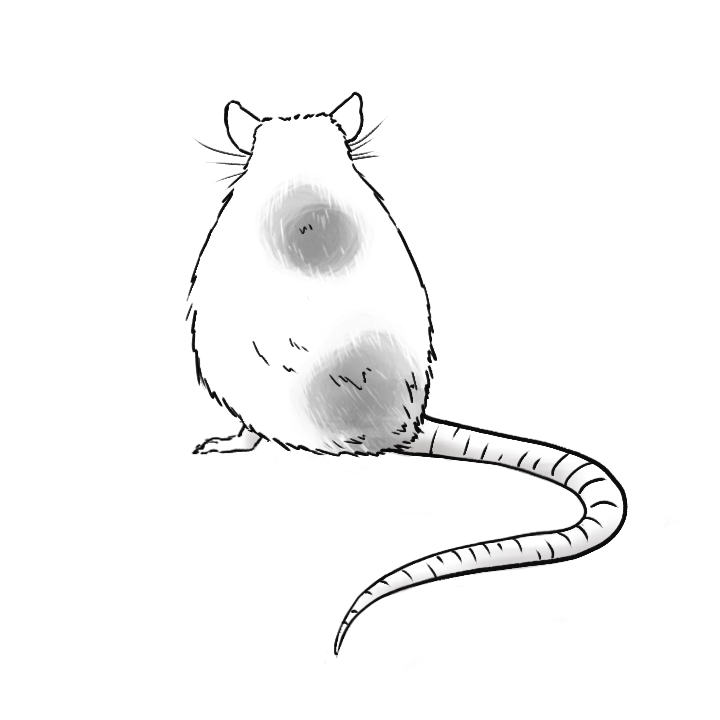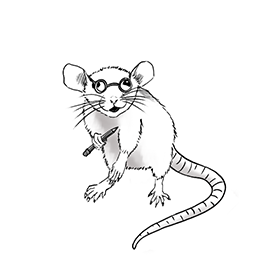Are you a learner of the English language? Do you ever get confused about how to spell words like there or their and your or you’re and its or it’s? If you do, don’t worry. You’re not the only one. Many learners and even many native speakers have trouble telling these words apart. They are so-called homophones: They sound the same, but are spelled differently.
But there are a few tricks which can help you remember once and for all which is which, so that you will never get them wrong again.
Ready? Let’s get started with some preliminary knowledge:

Most rat species are afraid of humans and live in forests.
The apostrophe
So, the first thing you need to understand is that with these little words the apostrophe is not used to form the possessive. This would be the case in sentences like: “Peter’s hat is too big for me”, or “The car’s antenna is crooked”. In those examples, the apostrophe is used with nouns or proper nouns (names) to show that something belongs to someone or something. But this only works with nouns. If you are using a pronoun (e.g. he, she, they), the apostrophe is no longer used. So we don’t say “He’s hat is too big for me”, but “His hat”. The same goes for the car: You cannot say “It’s antenna is crooked”. The correct word is “Its”.
In the words we’ll be talking about today, the apostrophe has a different function: It fuses two words into one. For example, we’re is made up of the words “we” and “are”. In these cases, the apostrophe shows us that one or more letters have gone missing in the fusion. Here, it is the “a” in “are”.
So, if you understand this, then you’ve already mastered a big part of the trick. But let us look at the homophones one by one:
Its vs. it’s
Since “it” is not a noun, the apostrophe in it’s cannot show a possessive. So it can only be a combination of two words: “it” and “is”. Its, on the other hand, must then be the possessive.
Your vs. you’re
The exact same applies for these two words. You’re stands for “you are”. So your is the possessive.
Whose vs. who’s
Same again. “Who is” and possessive. : -)
Where vs. were vs. we’re (not homophones!)
I am going to get slightly inconsistent here, because the above are not actually homophones. But understanding them will help us with the next three words and people do get them confused a lot. First, though, lets clarify the pronunciation:
- Where is pronounced like chair.
- Were is pronounced like her.
- We’re is pronounced like fear (or like we with an “r” at the end).
But which is which?
Let’s start with the last one, as we’ve already talked about this: We’re is made up of the two words “we” and “are”. Easy.
The easy way to tell where and were apart is by looking at the one little difference. Yes, I mean the “h”. Have you ever noticed that, in English, interrogatives (or question words) almost always start with the letters “wh”? Have a look:
- What?
- Why?
- Who?
- When?
- Which?
Keeping this in mind, it should be easy to remember that where must be a question word. That only leaves were: the past tense of the verb to be.
There vs. their vs. they’re
Now that we know how to tell where and were apart, the word there is no longer a problem, because it is spelled almost exactly like the question it answers: “Where?” “There!” – So remember: The “h” signals, in this case, either the question word or the answer to it.
The two remaining words work like our first three examples again: There is a fusion of the words “they” and “are”, whereas their is once again the possessive (it belongs to them).
And their they’re there we have it! Not that difficult, is it? ; -)

0 Comments